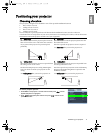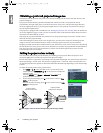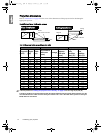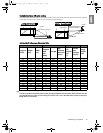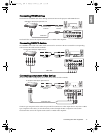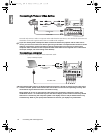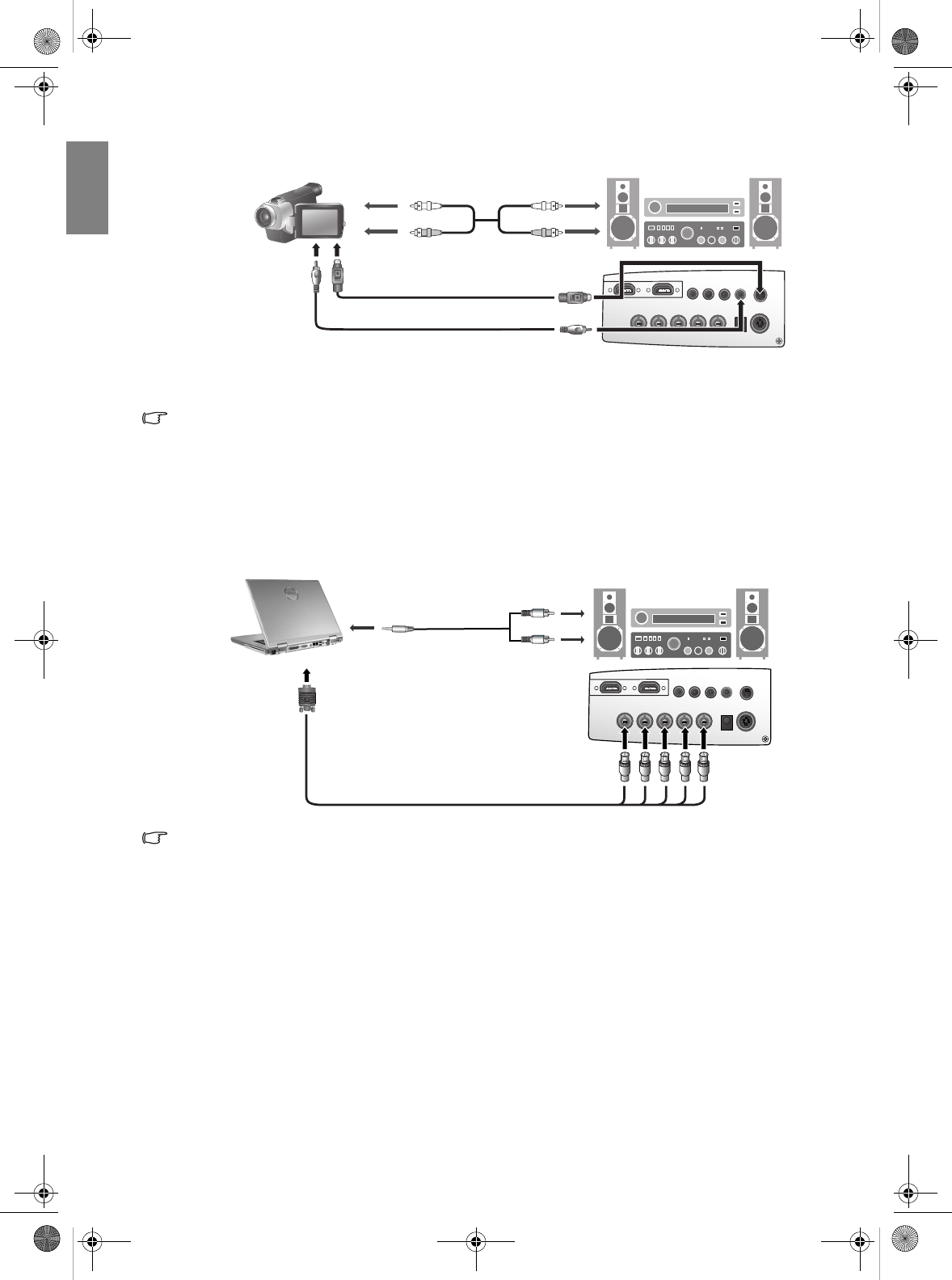
18
Connecting with video equipment
English
Connecting S-Video or video devices
You need only connect S-Video or composite Video cable from the same device, never both at the same time. You
should also connect the separate audio cable to a suitable audio amplifier.
If you have already made a Component Video connection between the projector and the video source
device, you need not connect to this device again using an S-Video or composite Video connection as this
makes an unnecessary second connection of poorer picture quality. You need only connect using a
composite Video connection if both Component Video and S-Video are not supplied on the video source
device (for example, with some analog video cameras).
Connecting a computer
Connect the projector to a computer with a VGA-BNC cable.
If the selected video image is not displayed after the projector is turned on and the correct video source
has been selected, please check that the video source device is turned on and operating correctly. Also
check that the signal cables have been connected correctly.
Many laptops do not turn on their external video ports when connected to a projector. Usually a key
combination like Fn + F3 or CRT/LCD key turns the external display on/off. Locate a function key labeled
CRT/LCD or a function key with a monitor symbol on the laptop. Press Fn and the labeled function key
simultaneously. Refer to your laptop’s documentation to discover your laptop’s key combination.
G/Y
HV
B/P
B/CB
R/PR/CR
12V TRIGGER
S-VIDEO
RS-232
Y
P
B/CB
PR/CR
VIDEO
HDMI
From audio output
terminals
To audio input
terminals
S-Video cable
Video cable
or
G/Y
HV
B/P
B/CB
R/PR/CR
12V TRIGGER
S-VIDEO
RS-232
Y
P
B/CB
PR/CR
VIDEO
HDMI
VGA-BNC cable
From audio output
terminals
To audio input
terminals
Laptop or desktop computer
W20000-en.book Page 18 Monday, October 22, 2007 3:35 PM




